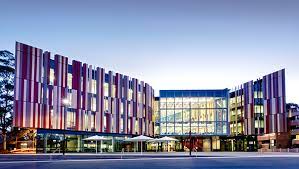Macquarie University: Young Tall Poppies for Molecular Biologist and Cognitive Scientist
The annual awards aim to recognise and celebrate Australian intellectual and scientific excellence, whilst encouraging younger Australians to follow in the footsteps of outstanding achievers and fostering a more publicly engaged scientific leadership in Australia.
As part of the Young Tall Poppy campaign, award winners will spend a year sharing their knowledge with school students, teachers and the broader community through workshops, seminars and public lectures.
This year’s recipients from Macquarie University are up-and-coming researchers who both focus on improving the health and wellbeing of people around the world with their innovative work in combatting antibiotic resistance and utilising psychedelics in the treatment of mental illness.
Dr Amy Cain, Faculty of Science and Engineering
Molecular biologist Dr Amy Cain is an ARC DECRA Fellow at Macquarie University, leading a multi-disciplinary research team situated across the School of Natural Sciences, the ARC Centre of Excellence in Synthetic Biology and Applied Biosciences. Her research focuses on developing new antibiotics using innovative functional genomic techniques, novel single-cell microfluidics-based methodology, adaptive evolutionary approaches and understanding complex drug resistance mechanisms.
She established and is the Director of the Galleria Research Facility, Australia’s first fully functional lab to screen and utilise the ‘in vivo’ (Latin for “within living organisms”) model, which assesses the ability of an organism to cause disease as well as the toxicity and effectiveness of new drugs. She also uses synthetic biology to create microbes that efficiently degrade various waste materials, like plastics and metals in collaboration with the US Army.
“By 2050, it has been predicted that antibiotic resistance will worsen and could cause an estimated 10 million deaths per year, which is more than all cancer deaths combined. Shockingly, we have very few new antibiotics in the discovery pipeline with only a handful being developed for the deadliest types of bacteria globally,” says Dr Cain.
“My research help to bridge a key gap between finding promising drug targets in bacteria and developing much-needed new antibiotic compounds for use. I hope eventually this may shed some light on how we can design new antibiotics, how to make the existing ones more effective, and also, how to slow down the rates of resistance.”
“It is truly an honour to receive one of Australia’s top awards for science and join an impressive list of previous Tall Poppies who have made significant contributions to scientific research and leadership.”
Dr Cain was awarded her PhD in Molecular Biology at the University of Sydney in 2012 and is currently a DECRA Research Fellow in the School of Natural Sciences.
Dr Vince Polito, Faculty of Medicine, Health and Human Sciences
Cognitive science researcher Dr Vince Polito from the School of Psychological Sciences has a keen interest in understanding how altered states of consciousness can impact on cognition and mental health, and he and his students have studied hypnosis, states of flow, meditation, yoga, chanting, virtual reality, religious rituals and psychosis.
Vince is best known for his work in psychedelics, conducting the first longitudinal study of microdosing, which has become the most cited paper on the subject to date, and recently completing a systematic review of all research on low-dose psychedelics since 1955. He has conducted numerous media interviews on the topic.
He is developing a psychedelic research program at Macquarie that includes the world’s first magnetoencephalography (MEG) study of microdosing, and a boundary-pushing clinical trial to investigate low doses of the active ingredient in magic mushrooms as a potential treatment for depression.
“I’m delighted and grateful to have received this wonderful award for my work,” he says.
“Altered states of consciousness haven’t always been a central part of psychological science, so I’m excited to be able to highlight the importance of this area of research.
“I want to help people understand hidden mental processes that drive our actions, and the Tall Poppy award provides a great opportunity for this kind of science outreach.”
He received his PhD in cognitive science at Macquarie in 2014 and is currently a Senior Research Fellow in the school of Psychological Sciences.

